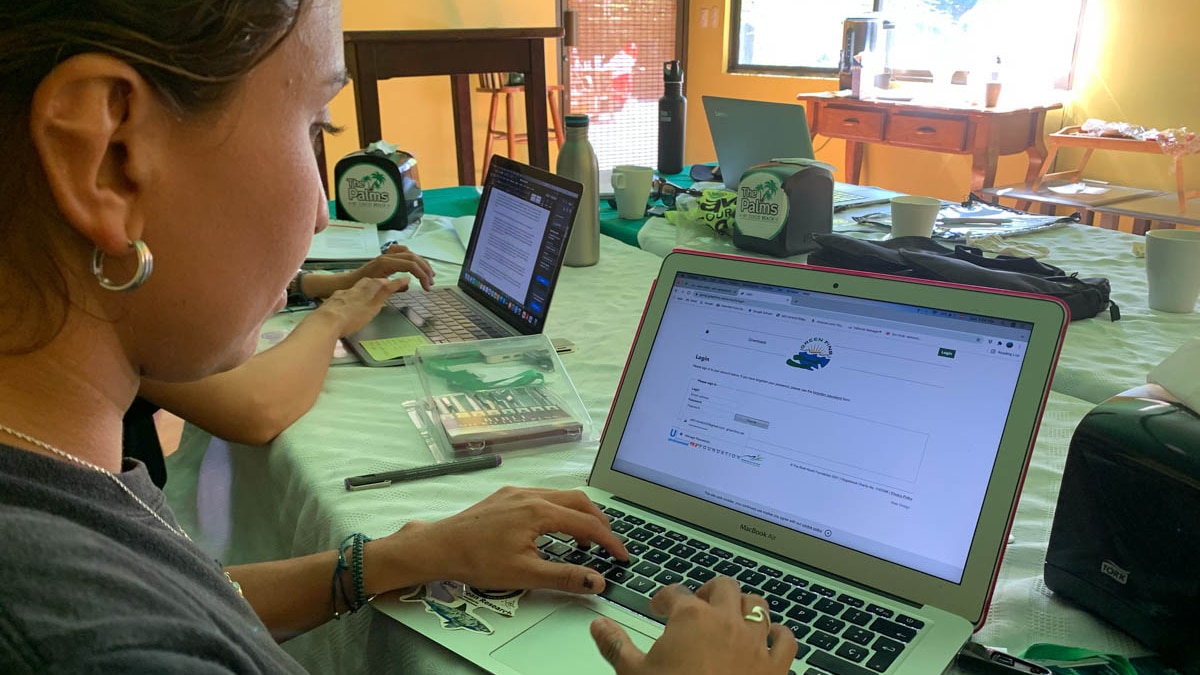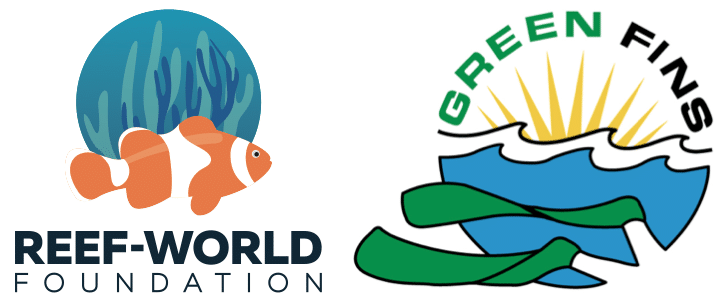Marine Life & Conservation
Reef-World announces launch of the updated Green Fins Dive Guide e-Course

 The Reef-World Foundation – international coordinator of the UN Environment Programme’s Green Fins initiative – is pleased to announce the launch of the updated Green Fins Dive Guide e-Course: new contents in Green Fins’ free online course designed to teach dive professionals about the marine ecosystems in which they work and to help build on their existing scuba diving knowledge to conduct more environmentally friendly dives.
The Reef-World Foundation – international coordinator of the UN Environment Programme’s Green Fins initiative – is pleased to announce the launch of the updated Green Fins Dive Guide e-Course: new contents in Green Fins’ free online course designed to teach dive professionals about the marine ecosystems in which they work and to help build on their existing scuba diving knowledge to conduct more environmentally friendly dives.
Diving-related damage to sensitive coral reefs remains an increasingly significant issue. According to the GCRMN’s The Sixth Status of Corals of the World: 2020 report, “reducing local pressures on coral reefs in order to maintain their resilience will be critical while global threats posed by climate change are addressed”. The Green Fins Dive Guide e-Course continues to equip dive professionals with the knowledge to manage this important issue.
Reef-World initially created the Green Fins Dive Guide e-Course in 2019 with the support of Professional SCUBA Schools International (PSS) but since 2021, the course has been independently hosted on the Green Fins website. Reef-World created the course to enable individual dive professionals to be part of the Green Fins network without their operation being a Green Fins member. To date, the course has enrolled 1,827 dive guides and instructors who have learnt how to maximise their ability to influence diver behaviour and better manage their guests to prevent them from causing damage to marine life, notably coral reefs. The Green Fins Dive Guide e-Course is still the only environmentally accredited course for dive professionals to learn best environmental practice.
The updated course now has an extended marine biology section, including lessons about coral reefs and other marine ecosystems, the latest updates in marine conservation and environmental threats; and the actions to help prevent them. Upon completing the course, there is an option to pay $25 to receive a personalised electronic certificate. All funds will be used to support Green Fins’ work worldwide to make sustainable diving the social norm. Each certificate has a validity of two years to encourage dive professionals to remain educated with the latest information.
Reef-World recommends that dive professionals retake this course every two years in order to refresh their skills and stay up to date with the latest environmental and dive industry knowledge. Just like refreshing their safety skills, refresher courses help to keep important knowledge fresh and current. Those who have completed the course can display the certificate to inform their guests that the guide is aware of reducing the environmental impacts of diving, making divers more confident about the guide and centre’s standards.
This is the first update since the course’s inception in 2019, with Reef-World now planning to update the course content annually, whilst making minor modifications throughout the year to match dive and conservation industry news and incorporating feedback from dive professionals who have taken the course.
JJ Harvey, Director at The Reef-World Foundation, said: “As global tourism slowly restarts, it’s crucial to stay up to date with the latest environmental knowledge. To protect coral reefs and minimise local threats to allow them to be more resilient and the chance to recover from other wider stressors effects such as climate change. Reef-World aims to continue providing dive professionals with the latest marine conservation and dive industry updates to help preserve the coral reef ecosystems, which many rely on for food, coastal protection, and income from tourism and fisheries.”
The Andrea Leeman Green Fins Dive Guide Scholarship Fund is still available for those who cannot afford the certificate personally or through their employers. This is funded purely from generous donations from the general public. Those that would like to support and sponsor a dive guide can do so by visiting: https://greenfins.net/sponsor-
Green Fins is the only internationally recognised environmental standard for dive and snorkel operators, established through a partnership between the UN Environment Programme and The Reef-World Foundation. Green Fins uses a unique and proven three-pronged approach; green certifications of dive centres, strengthening regulations and environmental education for dive staff, divers and government.
For more information, or to sign up for the Green Fins Dive Guide e-Course, please visit: https://greenfins.net/green-
Blogs
Invitation from The Ocean Cleanup for San Francisco port call

6 years ago, The Ocean Cleanup set sail for the Great Pacific Garbage Patch with one goal: to develop the technology to be able to relegate the patch to the history books. On 6 September 2024, The Ocean Cleanup fleet returns to San Francisco bringing with it System 03 to announce the next phase of the cleanup of the Great Pacific Garbage Patch and to offer you a chance to view our cleanup system up-close and personal.
We look forward to seeing you there.
To confirm your presence, please RSVP to press@theoceancleanup.com
PROGRAM
Join The Ocean Cleanup as our two iconic ships and the extraction System 03 return to San Francisco, 6 years and over 100 extractions after we set sail, to create and validate the technology needed to rid the oceans of plastic.
Our founder and CEO, Boyan Slat, will announce the next steps for the cleanup of the Great Pacific Garbage Patch. Giving you a chance to view our cleanup system and the plastic extracted.
Hear important news on what’s next in the mission of The Ocean Cleanup as it seeks to make its mission of ridding the world’s oceans of plastic an achievable and realistic goal.
Interviews and vessel tours are available on request.
PRACTICALITIES
Date: September 6, 2024
Press conference: 12 pm (noon)
Location: The Exploratorium (Google Maps)
Pier 15 (Embarcadero at Green Street), San Francisco, CA
Parking: Visit The Exploratorium’s website for details.
RSVP: press@theoceancleanup.com
Video & photo material from several viewing spots around the bay
We look forward to seeing you there!
ABOUT THE OCEAN CLEANUP
The Ocean Cleanup is an international non-profit that develops and scales technologies to rid the world’s oceans of plastic. They aim to achieve this goal through a dual strategy: intercepting in rivers to stop the flow and cleaning up what has already accumulated in the ocean. For the latter, The Ocean Cleanup develops and deploys large-scale systems to efficiently concentrate the plastic for periodic removal. This plastic is tracked and traced to certify claims of origin when recycling it into new products. To curb the tide via rivers, The Ocean Cleanup has developed Interceptor™ Solutions to halt and extract riverine plastic before it reaches the ocean. As of June 2024, the non-profit has collected over 12 million kilograms (26.4 million pounds) of plastic from aquatic ecosystems around the world. Founded in 2013 by Boyan Slat, The Ocean Cleanup now employs a broadly multi-disciplined team of approximately 140. The foundation is headquartered in Rotterdam, the Netherlands, and opened its first regional office in Kuala Lumpur, Malaysia, in 2023.
Find out more about The Ocean Cleanup at www.theoceancleanup.com.
Marine Life & Conservation
SHARK MONTH ARRIVES AT ROYAL WILLIAM YARD, PLYMOUTH

A shark has been spotted approaching Royal William Yard in Plymouth, much to the surprise of swimmers, paddleboarders and onlookers.
With its distinctive dorsal fin cutting through the water, the sizeable shark swam along the coastline, before turning to head inland towards Firestone Arch at Royal William Yard. The appearance drew a crowd, who were captivated for more than an hour by the unusual sight – and it was all caught on video.
The shark is one of many expected sightings at Royal William Yard over the coming weeks… because today marks the start of Shark Month!
In reality, the ‘shark’ spotted along the Plymouth shoreline was actually a custom-made model, created by the team at Royal William Yard and sailed underwater by Caroline Robertson‑Brown from the Shark Trust, who donned scuba diving gear for the occasion.
The stunt took place to launch Shark Month in style and draw attention to the work of the leading international conservation charity, which is based in Britain’s Ocean City. Spectators were reassured that the water was safe and many entered into the spirit of the performance, swimming or sailing alongside the shark.
Shark Month will take place across Royal William Yard throughout July and will feature an extravaganza of art, entertainment and advocacy for everyone to enjoy. The packed programme of events starts with an art exhibition and ends with a trip on paddleboards with shark experts – with everything from a shark quiz to a Jaws screening in between.
Paul Cox, CEO of the Shark Trust, said: “There are often assumptions and misconceptions when it comes to sharks. This was certainly the case with the shark spotted at Royal William Yard! While the British coastline is home to many species of shark, this was not one of them. However, we’re thrilled it caught people’s attention, because seeing a shark is a special and memorable moment. That is precisely why we want to celebrate these incredible creatures, highlight the need for conservation, and ask for help to safeguard their future.”
For more information about Shark Month at Royal William Yard, visit the Shark Trust Website.
Images and video: Jay Stone
-

 Blogs2 months ago
Blogs2 months agoDiving With… Nico, Ocean Earth Travels, Indonesia
-

 News1 month ago
News1 month agoMurex Bangka Announce New Oceanfront Cottages & Beachfront Dining
-

 Blogs2 months ago
Blogs2 months agoA new idea in freediving from RAID
-

 Marine Life & Conservation1 month ago
Marine Life & Conservation1 month agoIceland issue millionaire whale hunter a licence to murder 128 vulnerable fin whales
-

 Marine Life & Conservation2 months ago
Marine Life & Conservation2 months agoThe Shark Trust Great Shark Snapshot is back
-

 News3 months ago
News3 months agoCharting New Waters; NovoScuba Goes Global with the Launch of their Revolutionary Dive Training Agency!
-

 Gear News1 month ago
Gear News1 month agoNew Suunto Ocean – a dive computer and GPS sports watch in one for adventures below and above the surface
-

 Marine Life & Conservation Blogs2 months ago
Marine Life & Conservation Blogs2 months agoBook Review: Plankton
















